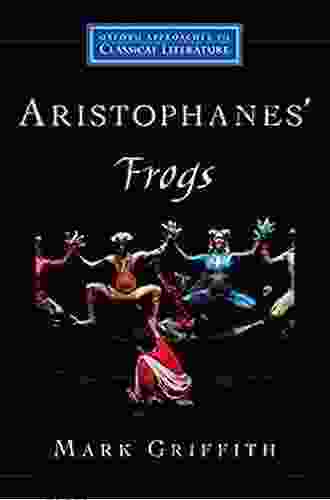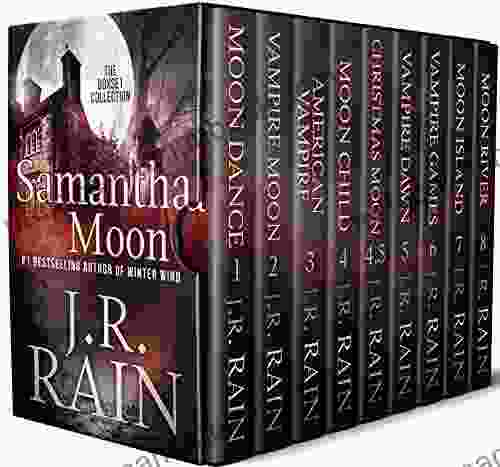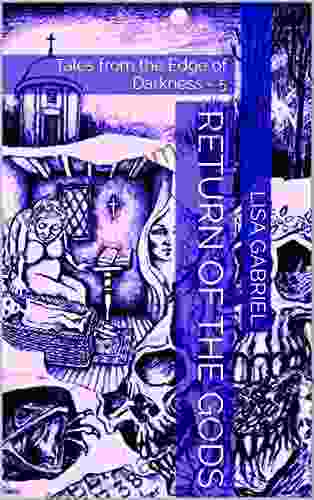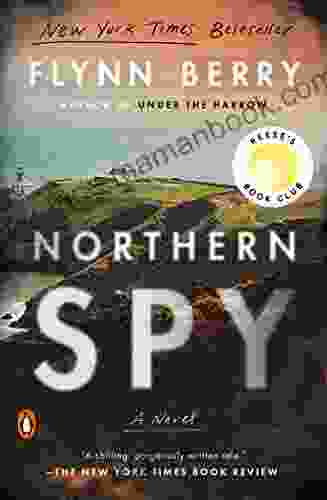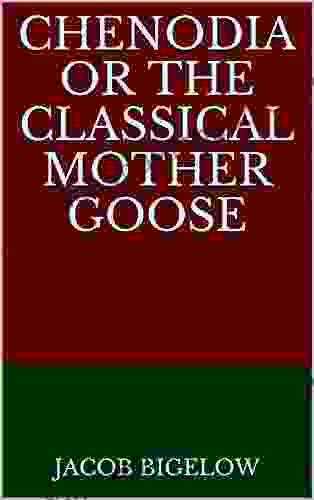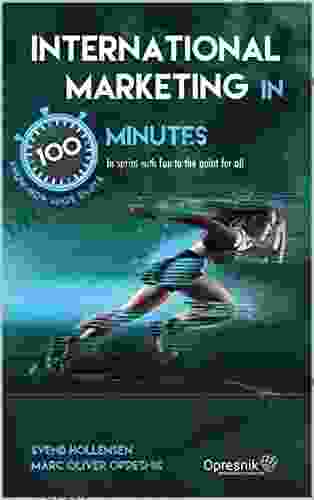Aristophanes' Frogs: Exploring Themes of War, Comedy, and the Afterlife in Ancient Greece

Aristophanes' Frogs, written in 405 BCE, is a comedic masterpiece that offers a scathing critique of Athenian society during the Peloponnesian War. The play follows the adventures of Dionysus, the god of wine and revelry, as he journeys to the underworld to retrieve the playwright Aeschylus. Along the way, he encounters a host of characters, including the chorus of frogs, the ferryman Charon, and the rival playwright Euripides.
4.5 out of 5
| Language | : | English |
| File size | : | 1925 KB |
| Text-to-Speech | : | Enabled |
| Screen Reader | : | Supported |
| Enhanced typesetting | : | Enabled |
| Word Wise | : | Enabled |
| Print length | : | 307 pages |
| Lending | : | Enabled |
Frogs is a complex and multi-layered play that deals with a wide range of themes, including war, comedy, and the afterlife. In this article, we will explore these themes in detail, providing a comprehensive analysis of one of the greatest works of Greek literature.
War
The Peloponnesian War, which raged from 431 to 404 BCE, forms the backdrop for Frogs. The play is full of references to the war, and its effects on Athenian society are felt throughout.
Dionysus' journey to the underworld is motivated by his desire to find a new poet who can help Athens win the war. He believes that Aeschylus, the great tragedian of the previous generation, is the only one who can save the city.
However, Aeschylus' work is full of violence and bloodshed, and Dionysus himself is no stranger to war. In the play's opening scene, he is shown to be a cowardly and incompetent soldier.
The play's portrayal of war is ambivalent. On the one hand, it shows the horrors of war and the suffering it causes. On the other hand, it also suggests that war can be a necessary evil, and that it can bring out the best in people.
Comedy
Frogs is a comedy, and its humor is often biting and satirical. Aristophanes uses comedy to criticize Athenian society, and he spares no one, from the gods to the politicians.
One of the play's funniest scenes is the "agon," or poetry contest, between Aeschylus and Euripides. The two playwrights argue over who is the better poet, and they use all sorts of insults and mockery to try to discredit each other.
The agon is a hilarious send-up of the rivalry between the two playwrights, and it also reveals their different approaches to comedy. Aeschylus is the more traditional comedian, while Euripides is more experimental.
Aristophanes' comedy is not just for laughs. It is also a powerful tool for social criticism. He uses comedy to expose the flaws in Athenian society, and he hopes that his plays will help to make the city a better place.
Afterlife
Frogs is also a play about the afterlife. Dionysus' journey to the underworld is a symbolic journey into the unknown. He encounters a variety of strange and wonderful creatures, and he learns about the nature of death and the afterlife.
The play's portrayal of the afterlife is ambivalent. On the one hand, it is a place of punishment for the wicked. On the other hand, it is also a place of peace and happiness for the righteous.
Aristophanes' play does not provide a definitive answer to the question of what happens after we die. However, it does suggest that there is more to life than what we can see.
Aristophanes' Frogs is a complex and multi-layered play that deals with a wide range of themes. It is a hilarious comedy, a biting satire, and a thought-provoking exploration of the nature of war, comedy, and the afterlife.
The play is a valuable source of information about ancient Greek society, and it continues to be relevant to audiences today. It is a reminder that laughter can be a powerful force for change, and that even in the darkest of times, there is always hope.
Further Reading
* Aristophanes, Frogs, translated by David Barrett (Oxford University Press, 2004) * Dover, K.J., Aristophanic Comedy (University of California Press, 1984) * Henderson, J.V., The Frogs and Other Plays (Penguin Classics, 1996) * Slater, N.W., Plautus in Performance: The Theatre of the Ludus (Princeton University Press, 2002)
4.5 out of 5
| Language | : | English |
| File size | : | 1925 KB |
| Text-to-Speech | : | Enabled |
| Screen Reader | : | Supported |
| Enhanced typesetting | : | Enabled |
| Word Wise | : | Enabled |
| Print length | : | 307 pages |
| Lending | : | Enabled |
Do you want to contribute by writing guest posts on this blog?
Please contact us and send us a resume of previous articles that you have written.
 Top Book
Top Book Novel
Novel Fiction
Fiction Nonfiction
Nonfiction Literature
Literature Paperback
Paperback Hardcover
Hardcover E-book
E-book Audiobook
Audiobook Bestseller
Bestseller Classic
Classic Mystery
Mystery Thriller
Thriller Romance
Romance Fantasy
Fantasy Science Fiction
Science Fiction Biography
Biography Memoir
Memoir Autobiography
Autobiography Poetry
Poetry Drama
Drama Historical Fiction
Historical Fiction Self-help
Self-help Young Adult
Young Adult Childrens Books
Childrens Books Graphic Novel
Graphic Novel Anthology
Anthology Series
Series Encyclopedia
Encyclopedia Reference
Reference Guidebook
Guidebook Textbook
Textbook Workbook
Workbook Journal
Journal Diary
Diary Manuscript
Manuscript Folio
Folio Pulp Fiction
Pulp Fiction Short Stories
Short Stories Fairy Tales
Fairy Tales Fables
Fables Mythology
Mythology Philosophy
Philosophy Religion
Religion Spirituality
Spirituality Essays
Essays Critique
Critique Commentary
Commentary Glossary
Glossary Bibliography
Bibliography Index
Index Table of Contents
Table of Contents Preface
Preface Introduction
Introduction Foreword
Foreword Afterword
Afterword Appendices
Appendices Annotations
Annotations Footnotes
Footnotes Epilogue
Epilogue Prologue
Prologue Donna Bulkley
Donna Bulkley Nadia Nak
Nadia Nak M Scott Brown
M Scott Brown J R Rain
J R Rain Meyrick Chapman
Meyrick Chapman Ross Keating
Ross Keating Alex Kava
Alex Kava Caitlin Lucas
Caitlin Lucas A Hamilton Augenblecq
A Hamilton Augenblecq Marie Dubuque
Marie Dubuque Alison Stuart
Alison Stuart Linnea Tanner
Linnea Tanner Ted W Lawson
Ted W Lawson Charles Fuhrken
Charles Fuhrken Jenny Beaumont
Jenny Beaumont A M Gregory
A M Gregory J J Zerr
J J Zerr Stacy Overby
Stacy Overby Mark Lawrence
Mark Lawrence Ashima Shiraishi
Ashima Shiraishi
Light bulbAdvertise smarter! Our strategic ad space ensures maximum exposure. Reserve your spot today!
 Nick TurnerFollow ·15.5k
Nick TurnerFollow ·15.5k Arthur C. ClarkeFollow ·4.8k
Arthur C. ClarkeFollow ·4.8k Ian PowellFollow ·7.3k
Ian PowellFollow ·7.3k Hudson HayesFollow ·12.3k
Hudson HayesFollow ·12.3k Aleksandr PushkinFollow ·9.5k
Aleksandr PushkinFollow ·9.5k Neil GaimanFollow ·18.8k
Neil GaimanFollow ·18.8k Brennan BlairFollow ·18.3k
Brennan BlairFollow ·18.3k Stuart BlairFollow ·18.4k
Stuart BlairFollow ·18.4k

 Vincent Mitchell
Vincent MitchellUnveiling the Enchanting Tale of Plant Reproduction: A...
Plants, the silent yet vibrant...
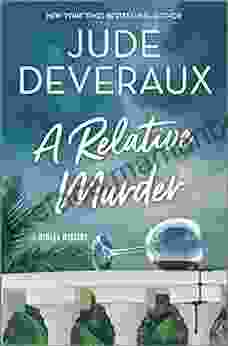
 Sam Carter
Sam CarterDelve into the Enigmatic World of "Relative Murder: A...
In the realm of mystery and suspense, the...
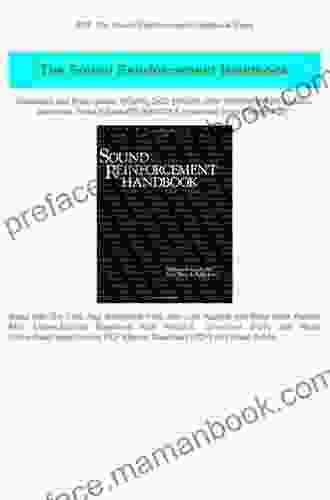
 Richard Simmons
Richard SimmonsThe Sound Reinforcement Handbook: A Comprehensive Guide...
In the realm of live sound engineering, The...

 Leo Tolstoy
Leo TolstoyEnter the New Era of Cyberwar: Unmasking the Kremlin's...
`` Prologue: The Digital...

 Brenton Cox
Brenton CoxFirst Lessons Ukulele Bridget Baker: A Comprehensive...
Embarking on a musical journey with the...
4.5 out of 5
| Language | : | English |
| File size | : | 1925 KB |
| Text-to-Speech | : | Enabled |
| Screen Reader | : | Supported |
| Enhanced typesetting | : | Enabled |
| Word Wise | : | Enabled |
| Print length | : | 307 pages |
| Lending | : | Enabled |


